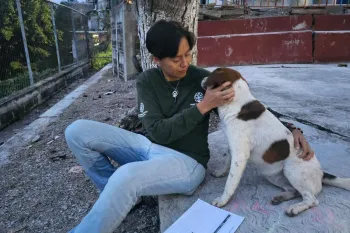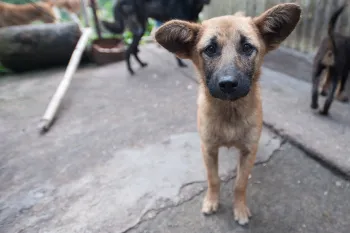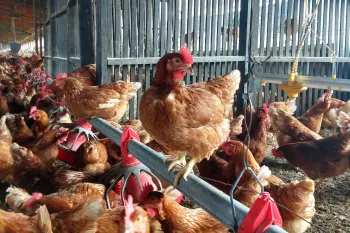MEXICO CITY—In a major development for animal welfare, Mexico City has revised its Animal Welfare law to officially recognize community animals—dogs and cats who live in public or communal spaces and are cared for by residents. This significant reform provides legal status and protection for animals who may not be adoptable due to behavioral or other challenges, while also promoting safer, healthier communities for everyone who shares space with them.
Humane World for Animals Mexico , formerly called Humane Society International Mexico, contributed to this reform, working closely with Deputy Manuel Talayero president of the Animal Welfare Commission and with the Animal Care Agency of Mexico City’s Bioethics Committee to promote ethical population control while creating a healthier and safer environment for both humans and animals.
Until now, animals living in streets, parks, and shared spaces could be removed and euthanized if reported to the city’s canine control center, despite being regularly fed and cared for by the community’s residents. The revised law ensures that animals receiving consistent care from the community can remain in their environment without risk of removal.
The law now defines community animals as dogs or cats who live in public spaces or common areas within a given community, and are accepted, fed, supervised, and cared for by a group of people within that community, to the best of their abilities. The law also formally acknowledges the contributions of the individuals or groups that voluntarily care for these animals, recognizing their efforts to provide animals with proper nutrition, a safe environment, medical care, and emotional well-being.
Importantly, the law does not place the full burden of care on community members alone. Article 73 of the same legislation outlines the responsibility of Mexico City’s Animal Care Agency to contribute to public policy that supports community animals through sterilization, education, and responsible guardianship initiatives.
“This reform shows that compassion can shape policy. It recognizes that care happens not only in homes, but also in streets, parks, and neighborhoods,” said Dr. Claudia Edwards, program director of Humane World for Animals Mexico. “We celebrate this reform as a shared victory, and we look forward to ongoing collaboration between communities and authorities to ensure long-term, humane solutions for street animals.” With this reform, Mexico City joins the growing list of cities recognizing community-based animal care as an integral part of inclusive and compassionate urban life.


